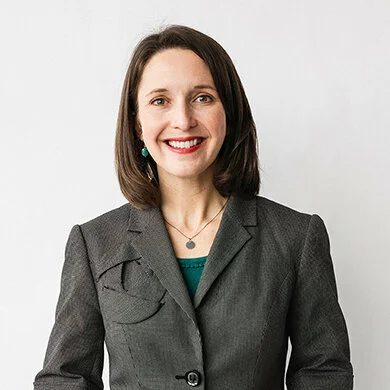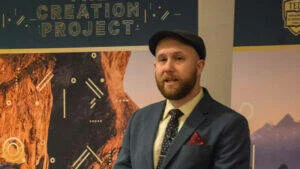Recent concerns about the state of theological education are legitimate—numbers have declined from previous eras—and yet, this trend does not leave me in a state of anxiety or despair (although I recognize I have the privilege of teaching and not the responsibility of setting the budgets). This sobering moment provides a motivation, albeit an uncomfortable one, for theological educators to ask basic questions afresh. Why do we do what we do? When we ask this question, I believe we can revive our awareness of the central aims of our calling. I’ll offer some suggestions for that core goal at multiple levels: undergraduate, masters, and doctoral.
I was educated in and have always taught in Christian liberal arts institutions. I acknowledge that might mean that I am biased, but, on the other hand, it does afford me decades of experience from different vantage points. I believe—and I trust that my colleagues in all departments would as well—that theological education is at the core of what Christian liberal arts institutions are doing. That does not mean that members of my department are more important than my colleagues outside of Bible and Theology. Instead, it means that the institution should rigorously screen and support all members of the community so that they see themselves as theological educators and conduct their educative activities from that conviction. They may be teaching Chemistry or Latin, but they are also, by their words and lives, teaching students about God.
They may be teaching Chemistry or Latin, but they are also, by their words and lives, teaching students about God.
At the undergraduate level, theological education aims to accomplish two things. At the end of the process, it seeks to send out graduates who can conduct themselves Christianly and have the confidence and skills to witness to God’s activity in both sacred and secular spheres. In order to do this effectively, undergraduate theological education must first achieve another goal. By opening students’ eyes to God’s presence, sovereignty, and goodness in every aspect of life, the curriculum is shaping their identity as mature human beings. I owe an immeasurable debt to my parents, my church, and even my Christian high school, but given the pivotal moment undergraduate education lands in one’s life, I have often said that it was in those four years, through superb teaching and faithful witness, that I became human. This is rhetorically strong, and therefore, an overstatement at a literal level, but it attempts to articulate poetically the massive transformation that can take place in undergraduate theological education, and which did in fact take place for me. Theological educators of undergraduates have the immense privilege of launching the precious lives that are entrusted to us.
As God has designed the human person, however, maturation is not limited to a particular season, but is available throughout life. Given that there is still much to learn after college, a certain number of students will choose to continue their formation through education in master’s degrees that are focused on some aspect of theology. At this stage, I believe the intent of theological education is also two-fold. First, students should engage with the rigors of our discipline. It is impossible to become expert in everything—better said, it is likely impossible to become expert in anything in only 2 to 3 years—but these students should be held to a high standard. They should be put out to swim in the depths of our fields, both so that they can get a glimpse of the depth and also so that they can learn experientially that they have more muscles to swim than they previously realized. The educators will still guide the students. They do not leave the students to drown, but as they pull them through the waters, they leave some slack on the rope. For those students who have chosen these graduate degrees, it is vital to realize that thinking and talking about God is complicated. It takes time and energy, humility and endurance, and, given enough freedom, they can develop these skills.
Theological education at this stage should form students who see the hard work they are doing in service of the church.
Second, I believe that theological education at this stage should form students who see the hard work they are doing in service of the church. The rigor has a telos beyond self-aggrandizement or intellectual curiosity. We are becoming rigorous academics because this is our contribution to the body of Christ. Theological master’s programs may not all be training future clergy, but they are training theologians, and theologians as a class would not exist save for the inbreaking of the Kingdom of God. Programs that are training theologians solely for the academy will eventually self-consume, and maybe this is what we are seeing in some sectors of theological education. Conversely, well aimed master’s programs train their students with all excellence and send those students out, both during the program and at the end, into their local churches, whether they become the pastors of those churches or not. All students should bless their local bodies commensurate with the depth of learning they are gaining. And this blessing cannot come from sophomoric know-it-alls, high on their own erudition, but comes from those who through intense struggle have gained a blessing from their studies, as well as a limp. They will be ecclesial members who humbly and joyfully offer up their discoveries to fellow brothers and sisters who have not been able to or who have not chosen to invest the time and energy in theological education as they have.
I hope that it is clear in these remarks that I believe every church should imagine itself as a space of theological education. People do not show up there to feel good, either in a how-to-live-your-best-life-pop-psychology way or a self-righteous-glad-I’m-not-like-the-other-tribe way, although both approaches are readily available in contemporary churches. People show up at church and not somewhere else because they want to encounter God. They are coming, even if they wouldn’t put it this way, for theological education. Every member of the church should see the offering of their gifts in that space, whatever those gifts might be, as helping to meet that end, helping themselves and all others present come to know God better. If that is true of all members, how much more so is it true for those who are specializing in theological education?
An even smaller group of students, unsatisfied by the depth of learning they were able to achieve in the master’s program, will go on to get a doctorate. I firmly believe that this most rigorous and in-depth degree can well serve a variety of vocations: professors, pastors, publishers, leaders in other fields. The commonality is not in the end result, but in the formation that happens on the way. One might imagine that at this point the goal is to create experts in the field, and surely doctoral graduates should be respectably conversant with the discipline, but the goal of this level of theological education, I would argue, is more basic and more profound. At this level, most students will come to the end of themselves. If they learned to tread deep water in the master’s degree, they will encounter some wave in the doctoral program that will, for a time, seem to drown them. Doctoral degrees are, it seems to me, cruciform. Some kind of death and resurrection occur that leaves a deep mark on the identity of the person. Maybe for the first time in their lives they learn their academic limits, and while they will become well versed in the field generally, and very adept at the topic of their dissertation, more fundamentally, they will become a different kind of person. They will be like one who, upon cresting the first hill of a mountain range, realizes their assent has only revealed to them how vast and high are the peaks they have yet to climb. This humility is paired with a hard-won confidence. They have amassed the skill and fortitude to climb at least one hill, and that is indication that, utilizing their ability to collect new skills and apply deeper levels of fortitude, they can do so again, and again. This level of theological education is certainly aimed at content transfer, passing on the traditions that were passed on to us, but profoundly more important is the formation of a theological educator, one who, no matter what field she or he enters, has gained the self-understanding—confidence in what one knows and humility in what one doesn’t—to lead others down the path of theological education.
What is theological education for? Shaping people: mature, effervescent, knowledgeable, and humble people.
At every stage, the population of students shrinks, and that is not a problem. Not everyone in God’s Kingdom should have a PhD, not everyone should even have a bachelor’s from a Christian liberal arts institution. Others are called to different paths, equally vital for the building of the Kingdom. But for those who are called to the cultivation of the theological mind, the goal is to equip those students with a hunger to press deeper into the knowledge of God so that they are ready to share that hunger with whomever they meet. What is theological education for? Shaping people: mature, effervescent, knowledgeable, and humble people. If we are faithfully shaping such people, our numbers may be different than they were in previous eras, but God has rarely been stymied by small. In fact, God seems to work powerfully through the few, as long as they are faithful.







Comments
Be the first one to make a comment!